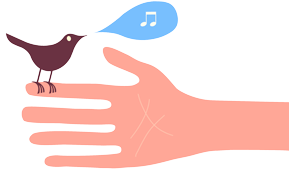 When I started graduate school to become a therapist, I thought that being a therapist would be easy. I figured that helping clients with their problems was no different from talking with friends about their problems and, since I talked to friends all the time, it would be a cinch.
When I started graduate school to become a therapist, I thought that being a therapist would be easy. I figured that helping clients with their problems was no different from talking with friends about their problems and, since I talked to friends all the time, it would be a cinch.
Wrong.
I quickly learned that talking to clients in therapy is much different from talking to friends about their problems. Talking to clients and talking to friends are similar, of course: in both cases, the therapist is talking to people s/he cares about, listening to them, and offering sympathy when needed. However, there are many important differences:
- Mutuality. When I am talking with a friend, the relationship is mutually supportive. Even if I am the one offering support in the moment, I know that tomorrow I can call up my friend and ask for support myself. With clients, the situation is different. As a therapist, my job is to support the client and to not expect to get my own needs for support met. Friends take care of each other, but clients should never be expected to take care of their therapists.
- Power dynamics. My friends and I have equal power in our relationship. The power dynamics in a therapy relationship are complicated. Since the client is coming to the therapist for help, the therapist is in the more powerful role of helper. The therapist has the power to diagnose a client and to offer guidance. The therapist has the power to end the therapy session at the agreed upon time. However, the client also has power. The client is the employer of the therapist. The client can fire the therapist at any time, while a therapist cannot just abandon a client without making sure the client has resources to get help elsewhere. The client has the power to decide what to talk about in therapy and what to keep private.
- Thought process. The thought process of talking to a friend is much different from the thought process of talking to a therapy client. This, more than anything, surprised me when I was learning to be a therapist. When I am talking to a friend, my thought process is fairly straightforward and uncomplicated. I am not paying conscious attention to my friend’s body language or facial expressions or tone of voice. I am not thinking about how whatever my friend is talking about is connected to what happened to them in the past. Nor am I thinking carefully about how I might respond in a helpful way.
With a client, however, there are many thought processes going on for the therapist at the same time. As a client is talking, I am likely to be thinking something like: I wonder why she is talking about this now. How is this connected to what she said five minutes ago? She seems sad; I wonder if she is actually sad or if I’m making that up. What is the quality of our connection to each other in this moment? What am I feeling about what my client is saying? Is that feeling related to what she is feeling? How can I respond in a helpful way? Is there any experiment we could do to increase her awareness? And that’s just a little bit of what’s going on in my brain. While all of that is going on in my head, another part of me is dedicated to paying very close attention in the moment, to being present, to saying things to make sure I am understanding what the client is saying. All of this is happening at the same time. It is extremely challenging and mentally tiring, while also being enlivening and exciting and interesting. It is not at all how I feel when I talk to a friend.
I’m sure there are many other differences which I am not thinking of right now. I do want to emphasize one important similarity between a therapist’s talking with a friend and talking with a client: genuine care and connection. I genuinely care about my friends and I genuinely care about my clients. I find that clients sometimes doubt that it is possible for me to really care about them; they think that since I am being paid to talk to them I don’t care about them. I can understand clients’ being confused about this. After all, if I weren’t being paid, I wouldn’t be talking with them.
My hope is that, over time, clients come to see that I care about them and feel connected to them. I can care about people even when I am getting paid. And, when clients stop coming to see me and are no longer paying me, I still care about them. But I don’t think there is really a way to convince people that this is the case. If a client and I are successful at building a good therapy relationship with each other, they do eventually believe that I care about them. To the extent that they doubt my caring, it just means we have more work to do in therapy.
